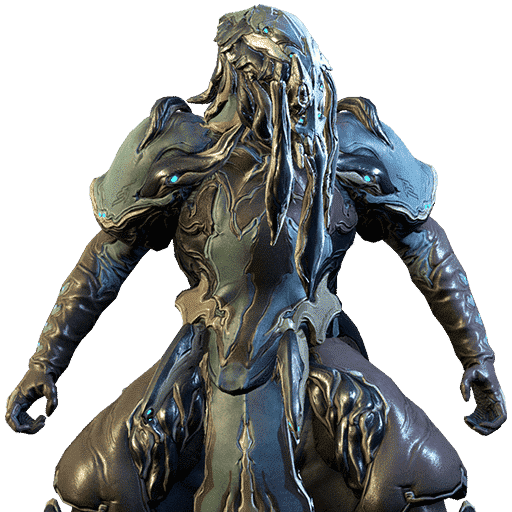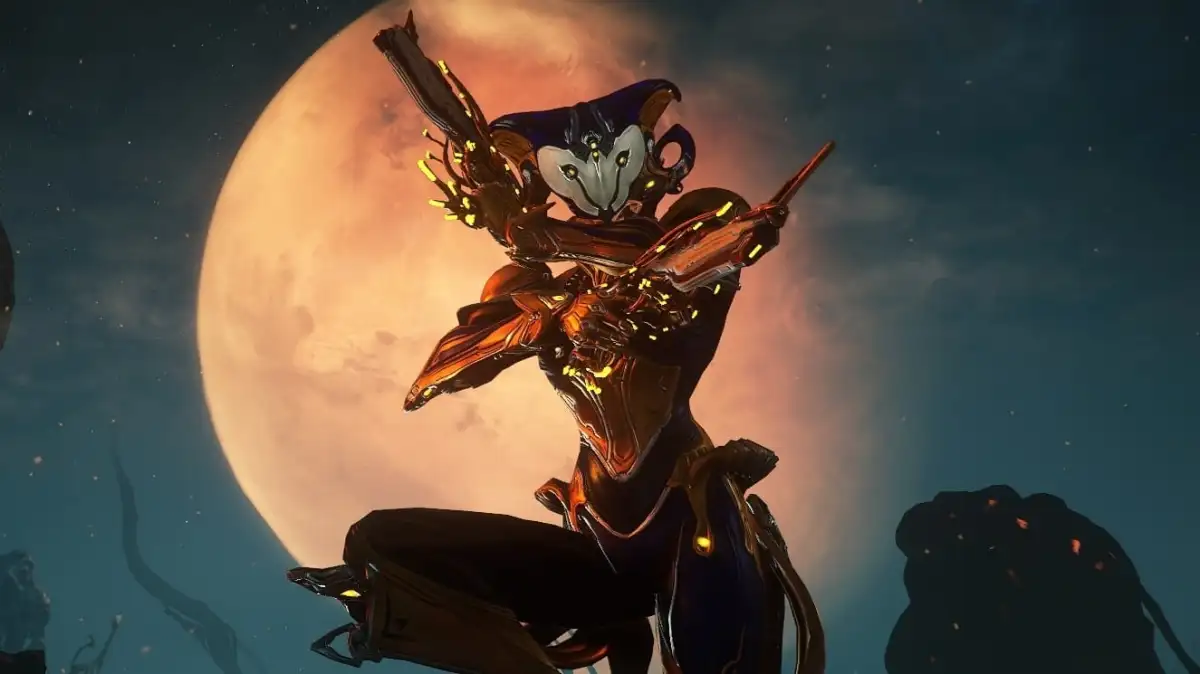Sometimes I wonder if octopi know they hold the starring role in basically every cosmic horror video game ever made. They’re disturbingly intelligent and have an uncanny knack for problem-solving, so is it really that improbable that they might have discovered our obsession with styling eldritch monstrosities after their be-tentacled majesty? Frankly, it seems a little rude that when faced with the task of detailing a manifestation of incomprehensible terror, we always turn to deep-sea aquatic life for inspiration (though I suppose that’s just another point in the long list of reasons why H.P. Lovecraft was deeply problematic).
I don’t think octopi will mind the use of their likeness though, because it feels like every protagonist in the cosmic horror genre is a puny human weakling, woefully inadequate and a pushover in contrast to their opposition; the aforementioned eldritch examples of cephalopod might. Every protagonist, that is, except for that of my favourite video game to present cosmic horror, my undisputed pick for the most faithful representation of the fundamental tenets of the genre. That game is, of course, Warframe.
You know, the multiplayer looter shooter. The one with a secret Flappy Bird mini-game. You play as a robot space ninja.
At first glance, I’ll admit Warframe doesn’t exactly scream ‘horror’. It has its fair share of creepy villains and even a few octopus-like tentacle monsters, but as cosmic as the space setting is, a third-person looter shooter doesn’t fit the traditional bill for the cosmic horror genre.
You’d probably find yourself imagining something more like Amnesia or Call of Cthulhu – vulnerable protagonists at the mercy of vast, incomprehensible forces have been a staple of the genre ever since its earliest days in literature. Or perhaps you’re willing to compromise a little, maybe with some protagonists who have a bit more of a chance of defeating what they’re going up against, like the heroes of Darkest Dungeon or Bloodborne. They might be tangling with a menagerie of the nastiest beasts to feature in my bouts with sleep paralysis, but they do have an arsenal of weaponry to fight back (as well as a concerning amount of blood to ingest. Really, that can’t be healthy).
Warframe though, is a game about robot ninjas with demigod-like powers, killing aliens and crafting an armoury of the wildest space guns you’ve ever seen. With all that power in the player’s hands, how can Warframe portray the vulnerability and fear of the incomprehensible for which cosmic horror is so well known?
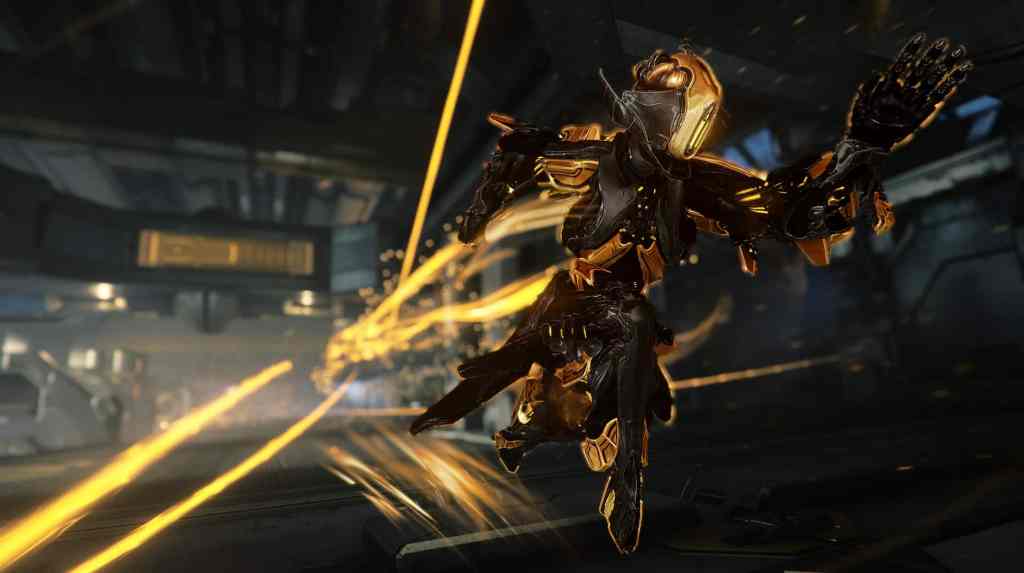
The answer is that in truth, the power of the protagonist is largely irrelevant when it comes to portraying the key aspects of the cosmic horror genre.
The fundamental fear that defines cosmic horror is not simply a fear of the unknowable, or of vulnerability in opposition to beings with powers beyond comprehension – these are just a catalyst for the deeper, true fear. It isn’t about being weak or ignorant.
The heart of cosmic horror lies beyond the event horizon, once forbidden knowledge has expanded your scope of understanding, to the point that hidden meanings and profound truths are visible in even the most seemingly-inconsequential things. Once you find yourself with power to match those who previously eclipsed you, who you now threaten in turn.
In that height of newfound strength and enlightenment, every question you hold is answered – and whether those revelations you glean are horrifying or joyous matters not, because you know that you have been changed by knowledge, and cannot continue to exist in the state you once did.
And then you fall.
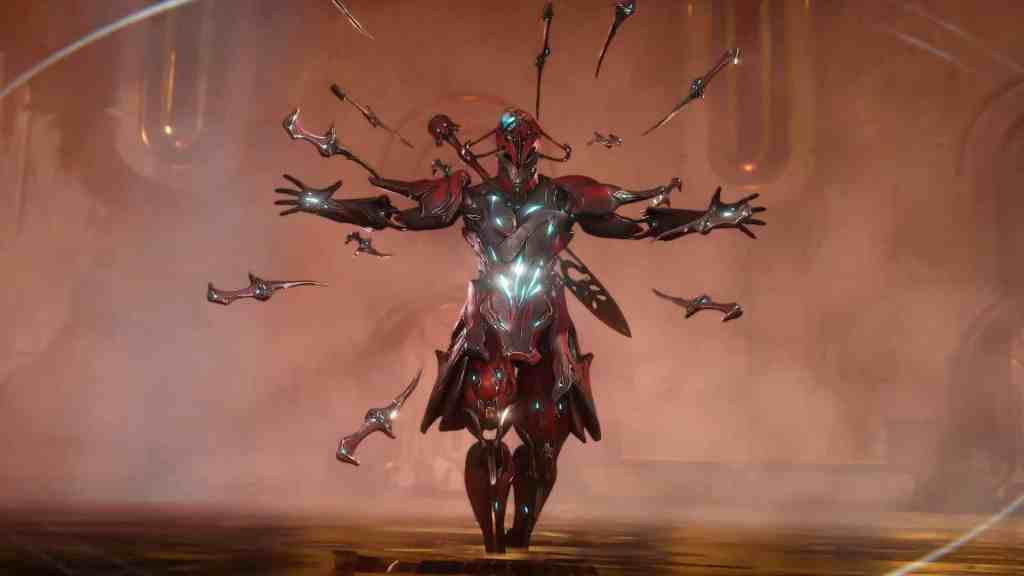
You buckle under the weight – too small, too weak. You can’t hold it all in. Profound understanding is stripped away, truth by truth, until all the pages of questions that you filled with answers – solved for a single, perfect moment – lie blank. And here lies the true horror; these blank pages aren’t the same as they were before. Just as you had been irrevocably changed, so too has your perception of reality.
None of your questions are unanswered now – you already answered them! But you can no longer understand what those answers are, and you never will again.
And those beings who you walked on equal footing with for the briefest moments? In truth, your power was transient, unreal. You couldn’t hope to match them even at your highest peak. So now you’re here, back at the bottom. With far less than you had at the start, because now you know that for all your effort, you can never reach far enough.
When you play as a weak, vulnerable protagonist, it makes perfect sense that you can’t fight the spooky monsters on equal footing. The twisted memory of my corrupted ancestor is slaughtering my party in Darkest Dungeon? Makes sense, I’ve been getting my ass kicked this whole time. A screaming pale man just crawled out of an old god and is trying to murder me with his own placenta? He isn’t even the most horrifying Bloodborne boss (that prize goes to Ludwig the Accursed, my beloved).
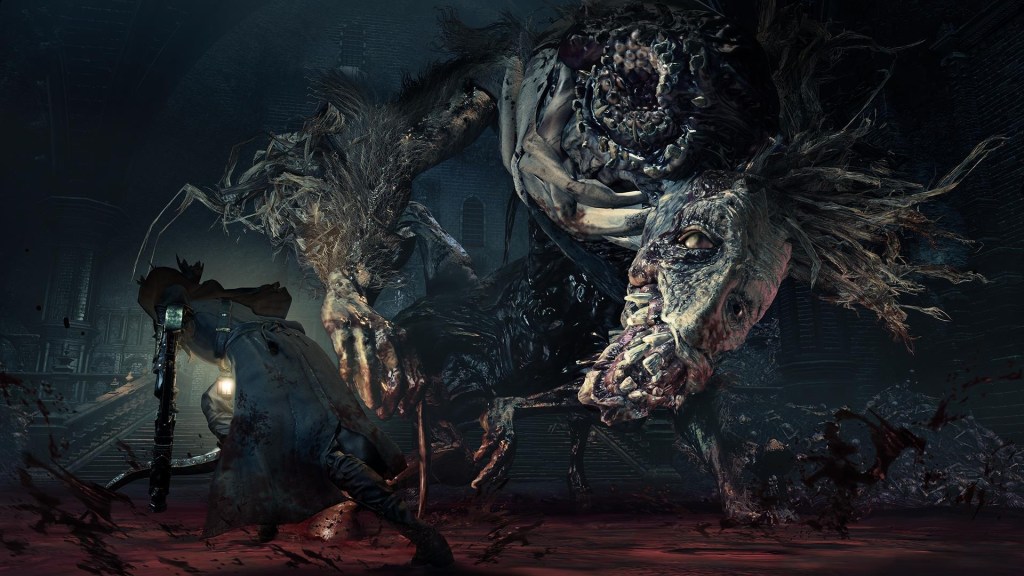
These games capture the tone and aesthetic of cosmic horror beautifully, but as ‘horrific’ as their depictions can be, they present fear or tension more often than horror, because what you see tends to be what you get.
The spider horse with a questionable relationship with his moonlight greatsword might represent the slow corruption of a man’s quest for virtue in the face of evil, but at the end of the day, all you really need to do is beat the shit out of him with a circular saw on a stick.
In contrast, Warframe spends dozens of hours guiding you through an exhilarating power trip as you tour the solar system, destroying everything that dares confront you with a constantly evolving arsenal of bows, swords, rifles, plasma shotguns, escalating in power until you’re an unstoppable force, unchallenged in the galaxy. And then –
Rap. Tap. Tap.
You dream. You wake. You wake again. How many dreams lie beyond the second?
A child’s soul – torn and threadbare – plugs a hole in the dam at the edge of reality.
Children lost on a sinking ship, a bargain struck across every moment in Eternity.
The Zariman Ten Zero, calling out its Void-song across the system.
“Hey, Kiddo”.
Warframe makes you unstoppable because your strength highlights the gulf of power between you and the cosmic forces pulling your strings. It raises questions that it’s happy to answer, because the answers only make it harder to predict the next steps in the dance you’re following. And perhaps most importantly for a game working in a genre like cosmic horror, it never fails to make these moments enjoyable. The moments of horror can be something of a tonal shift from the typical gameplay loops at work in Warframe, but that juxtaposition only highlights their effect, in much the same way as the protagonist’s power juxtaposes their vulnerability.
Experiencing the brilliant horror at work in the story of Warframe is quite a time commitment, but one well worth the investment. In a genre whose protagonists tend towards being mild-mannered academics, amnesiac travellers, or racist authors with untreated ichthyophobia, the power of Warframe’s protagonist is unmatched, and so too is their capacity to fall. My only complaint is the shameful lack of cephalopods, though I suppose I could always run a mission as Hydroid.
I’m kidding, of course. Using Hydroid would be a true horror experience.
